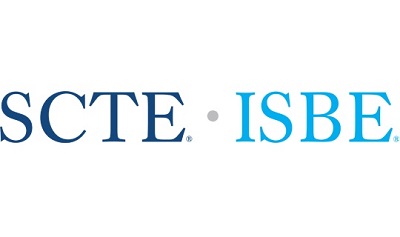
EXTON, PA — The Society of Cable Telecommunications Engineers (SCTE), in conjunction with its global arm, the International Society of Broadband Experts (ISBE), has created a new Generic Access Platform working group within the SCTE•ISBE Standards program to promote technical innovation in node housing interfaces.
The Generic Access Platform (GAP) project, conducted within the Interface Practices Subcommittee (IPS), is intended to develop standardized physical, thermal, mechanical and electrical interfaces for node housings or families of node housings, SCTE•ISBE said in a news release.
The GAP project is being chaired by two engineers from Charter Communications and the working group’s members will include representatives of Charter, Cox Communications, Liberty Global and Shaw Communications, as well as at least five vendor companies that have joined the SCTE•ISBE Standards Program so they can participate in the GAP project.
“Solutions that optimize flexibility, agility and scalability are essential to achieving service velocity for the deployment of innovative technologies,” said Matt Petersen, vice-president, access architecture for Charter. “The Generic Access Platform is intended to create an improved operational environment in which any module that is compliant with the GAP specification will be able to coexist with other GAP-compliant modules that are physically able to be installed in a GAP-compliant housing.”
Dean Stoneback, senior director, engineering and standards for SCTE•ISBE, said the GAP project builds on earlier concepts in interface standardization.
“The goal of the working group is to improve time to market and total cost of ownership for all types of HFC (hybrid fibre-coaxial) solutions, including DOCSIS, Wi-Fi, PON, 5G and business services,” Stoneback said.
The inaugural meeting of the GAP project took place on March 14. Currently, the group meets every two weeks and is reviewing presentations by various proponents on subjects that include functional specifications, interop testing, alternative materials, thermal modelling, housing designs and system requirements.
The SCTE•ISBE Standards Program is the only ANSI-accredited forum for the development of technical specifications supporting cable telecommunications. Standards work includes: Internet of Things; data and telephony over cable; application platform development; digital video; emergency alert systems; network monitoring systems; cables, connectors and amplifiers; construction and maintenance practices; energy management; and other areas of interest.
Corporate membership in the program is open to any organization in the cable telecommunications industry. Member organizations develop standards and recommended practices through their technical representatives who serve on committees and subcommittees. The program currently has a long-term outlook of advancing new standards programs such as Internet of Things and energy management over the next several years.
For more information about the SCTE•ISBE Standards Program, click here.


